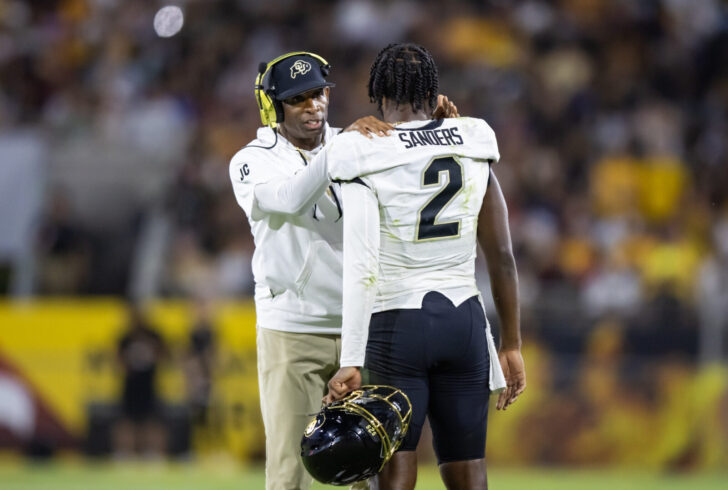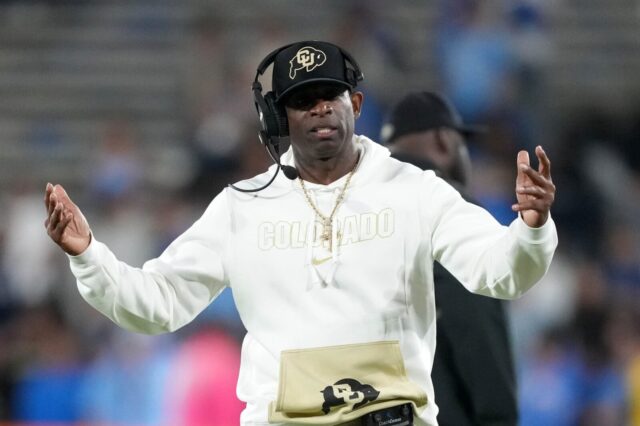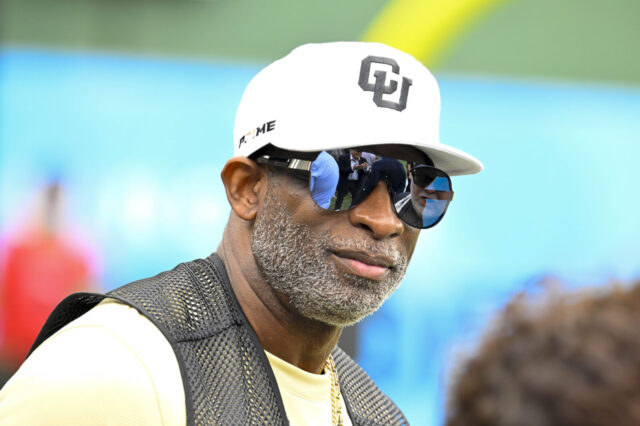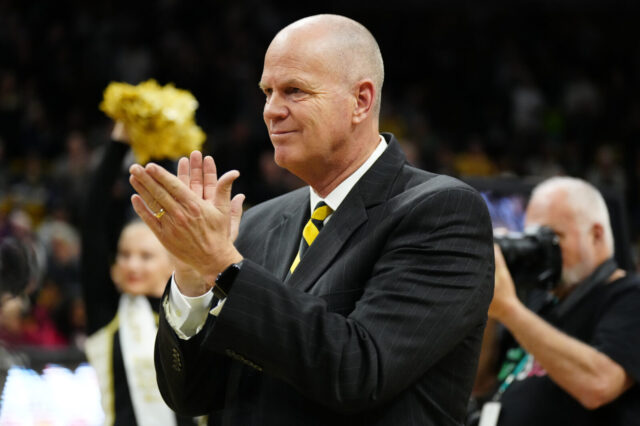Strike 1: Talk to Colorado Buffaloes football fans and mention the names of Dan Hawkins and Deion Sanders. You’re going to get polar opposite reactions. Simply put, CU fans see Hawkins as a loser, and Deion as a winner.
But it’s not that simple. Strip away the hype and the emotion, and there are definite similarities, both good and bad.
Hawkins coached the Buffs for almost five seasons, compiling a record of 19-39 (32.75%) after arriving from a successful run at Boise State with much fanfare, but saddled with substandard facilities and support. In five seasons with those Broncos, he won four conference titles, went to four bowl games and won two of them. He was a hot commodity when CU lured him away.
After a rough first year, the Buffs upset third-ranked Oklahoma in Boulder in year two and earned a bid to the Independence Bowl, where they lost to Nick Saban’s first Alabama squad.
Things went downhill after that.
The losing was tough enough to swallow, but what made things even worse was the visual of Hawkins bringing in his son Cody to be CU’s starting quarterback. Cody became a lightning rod for criticism. He put up nice individual stats, but that never translated to wins. Yet he’s still comfortably in third place among CU all-time passing leaders, ahead of guys like Joel Klatt, Koy Detmer and Kordell Stewart.
The Hawkins father-son/QB combo will never ever be revered in Boulder.
Fast forward more than a decade and Sanders first year as the head football coach at the University of Colorado, when the team was 4-8 (33.3%) will be remembered forever for a lot of reasons, including the tremendous impact the Hall of Famer had on the program financially and from an attention standpoint, even though it was just as unsuccessful on the field.
This also includes of course Sanders’ son Shedeur as the Buffs starting quarterback.
The comparison is right there.
You don’t have to be an NFL scout to see that Shedeur is a far more talented quarterback than Cody Hawkins ever was. But being the coach’s son/QB still brings an extra layer of attention. If you’re a Sanders, attention is what you’re all about. But not all of it’s good.
Like Cody, Shedeur put up good stats as the Buffs signal caller, but not a lot of wins.
Regardless, the Sanders father-son/QB tandem IS currently revered by CU faithful. Could that standing could be in any danger?
Fact of the matter is, there’s a not-so-good element of “Daddy Ball 2.0” going on in Boulder, as displayed most recently by the Louis Vuitton Paris modeling episode. Last week, Shedeur and his brother Shilo skipped the Buffs first team meeting of the year – with Deion’s blessing – to travel to Paris to do some runway modeling (presumably as part of their lucrative NIL deals.) The move has been criticized by friends and foes alike as sending the wrong message.
Those criticisms mean nothing to Deion. He’s far more worried about what other coaches are saying about him. Still, it’s more than fair to ask if the same “blessing” would have been given to any of the CU players who were not related to the head coach?
Don’t forget, last season ended with acclaimed offensive coordinator Sean Lewis quitting as the Buffs play caller with four games to go due to the special treatment the son/QB was getting. This included Shedeur’s personal quarterback coach being involved with team meetings and game plans, not running the plays that Lewis was sending in, and reportedly holding on to the ball too long when he should have been throwing it away in order to keep up his completion percentage. (By the way, these are the same things that Russell Wilson was reportedly doing under Nathaniel Hackett in 2022 that drew the ire of Denver Broncos followers.)
As soon as the season ended, Lewis, offensive line coach Bill O’Boyle, and tight ends coach Tim Brewster all resigned. Lewis is the new head coach at San Diego State.
Preferential treatment for star players is nothing new at any level of sports. It’s all good when the team is winning. Still, “the coaches kid” always has and always will carry with it a negative connotation. When you’re 4-8, allowing your son(s) to do things other players wouldn’t be allowed to do is the kind of thing that can turn a difficult situation into something much worse.





